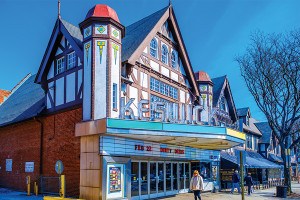We Want to Believe: Can the City Sell Vacant Schools As Quickly As It Says?
Mayor Nutter and School Superintendent Hite announced a revised plan to get all those closed schools sold on the real estate market. The new, improved Philadelphia Schools Repurposing Initiative, which has approval from the School Reform Commission (SRC), will allow “highly marketable properties to be identified for expedited sale in order to generate much-needed funds for the School District.” (It’s a good idea to separate the wheat from the chaff; there are some schools that simply don’t have a viable commercial future, unfortunately, and others that have great potential.)
In a statement, Nutter said he and Hite are looking for ways to repurpose the schools “as quickly as possible.” Hite emphasized speed as well, “The School District of Philadelphia recognizes the importance of moving quickly to ensure appropriate reuse of the buildings that became vacant as a result of the Facilities Master Plan.”
Deputy Mayor for Economic Development Alan Greenberger, who will be involved in the project, was a bit more cautious: “This is a complicated, sometimes lengthy process as other school districts across America have experienced,” he said, perhaps so that in a few months he can point back to that very quote.
But he added: “However the City of Philadelphia and the School District of Philadelphia are committed to selling these properties and establishing new uses for them as quickly as possible.”
Here’s how things will proceed:
1. “The City and the School District will host a series of public meetings to discuss the disposition process and gather feedback.”
2. “There will be neighborhood-based meetings focused on specific locations… facilitated by Philadelphia City Planning Commission staff.”
3. “Community input will be incorporated into public information about the sites and the property acquisition process.”
4. “The City will develop a comprehensive website with detailed information about the properties, including photographs, property condition, neighborhood trends, local demographics, zoning designation and other key conditions. The website will inform the public and potential buyers about the status of each property and offer opportunities to express interest in those properties. Community members and other stakeholders will be able to provide feedback on the website.”
It’s wonderful to ask for so much community input. It’ll also be wonderful to draw boundaries at some point if, in fact, the need for funds is urgent. Community battles–some, of the NIMBY variety–can drag on for years, or at least it feels that way in neighborhood meetings. There has to be an appropriate procedure so that building neighborhood consensus isn’t the primary consideration.
Task No. 4 is also quite daunting. Much of City Hall is using software that was minted in the 1970s on a TRS-80. Some offices, like that of the Sheriff, just don’t use any software at all. It might seem to you that you or your kid or your friend or your friend’s polydactal cat could make a website of the kind the city needs in a couple days. But City Hall knows not “seems.” When it comes to computers, in fact, they know not. Anyone listening over there? PROVE US WRONG.
• CITY OF PHILADELPHIA, SCHOOL DISTRICT PARTNER TO ASSESS BEST OPTIONS TO REPURPOSE CLOSED SCHOOL PROPERTIES [City of Philadelphia News & Alerts]


